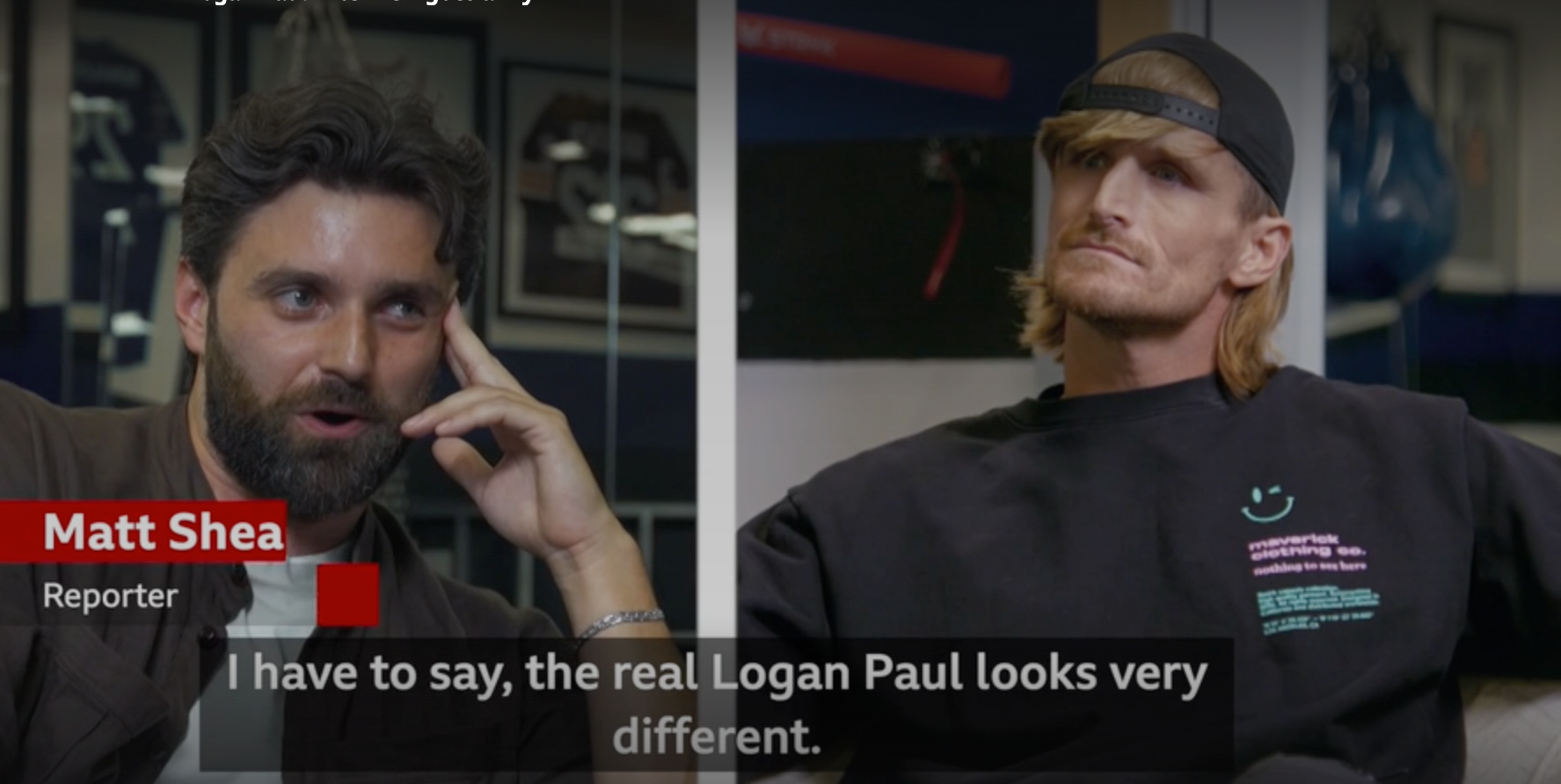The Independent's journalism is supported by our readers. When you purchase through links on our site, we may earn commission.
Logan Paul trolls BBC by sending lookalike to answer questions about crypto accusations
Network’s new documentary ‘Logan Paul: Bad Influence?’ investigates allegations that influencer profited off misleading fans into investing in cryptocurrency
Logan Paul sent a lookalike in his place after the BBC arranged an interview with the social media star over his cryptocurrency dealings.
On Wednesday (November 20), the broadcaster released a documentary titled Logan Paul: Bad Influence?, which investigates concerns that the controversial YouTuber misled his fans into purchasing cryptocurrency. He denies any wrongdoing.
For the documentary, reporter Matt Shea tried to schedule a sit-down interview with Paul, but the movie’s producer and director Jamie Tahsin said he repeatedly turned them down.
“For several months, Paul refused to talk to the BBC about our investigation,” Tahsin wrote for the BBC website. “Then he appeared to relent, inviting us to interview him at his gym in Puerto Rico.
“However, when our crew arrived, a Logan Paul lookalike turned up in the YouTuber’s place,” Tahsin added.
In a short clip of the interaction published on the site, Shea can be seen introducing himself to the impersonator before sitting down and calling him on his bluff: “I have to say, the real Logan Paul looks very different.”

“Did you come all the way over here to ask about how I look?” the impersonator responds, with Shea asking: “Is Logan coming?”
“I’m right here bud,” the man replies before Shea shuts down the interview, saying: “Let’s get out of here, we’re not doing this.”
A small crowd then enters the gym, shouting abuses aimed at the BBC. “BBC is vile. They hire pedophiles,” one man says into a megaphone, likely referring to the broadcaster’s Jimmy Savile and Huw Edwards scandals.

Minutes after abandoning the interview, Tahsin said that they received a letter from Paul’s lawyer, warning them of possible consequences they’d face if they published their findings.
In 2022, the YouTuber-turned-professional boxer and older brother of Jake Paul faced backlash after the price of crypto token Dink Doink plummeted shortly after he promoted it on his popular Impaulsive podcast. What he failed to mention to listeners was that he was friends with the project’s creator and the two had brainstormed the cryptocurrency together.
“I don’t know what went absurdly wrong,” Paul said in an interview at the time. “That’s the project from hell, and I just wiped my hands of that.”
The Independent has contacted Paul’s representative for comment.
Paul is now facing fresh allegations about his cryptocurrency dealings, with the BBC reporting they’ve seen “new evidence to suggest he promoted investments without revealing he had a financial interest in them.”
Last year, he was also hit with a multi-million-dollar class action lawsuit over a failed online game venture, CryptoZoo, which allegedly took millions of dollars worth of cryptocurrency from participants through “fraudulent” means.
“Defendants promoted CryptoZoo’s products using Mr. Paul’s online platforms to consumers unfamiliar with digital currency products, leading to tens of thousands of people purchasing said products,” the filing read. “Unbeknownst to the customers, the game did not work or never existed, and the Defendants manipulated the digital currency market for Zoo Tokens to their advantage.”
Join our commenting forum
Join thought-provoking conversations, follow other Independent readers and see their replies
Comments
Bookmark popover
Removed from bookmarks